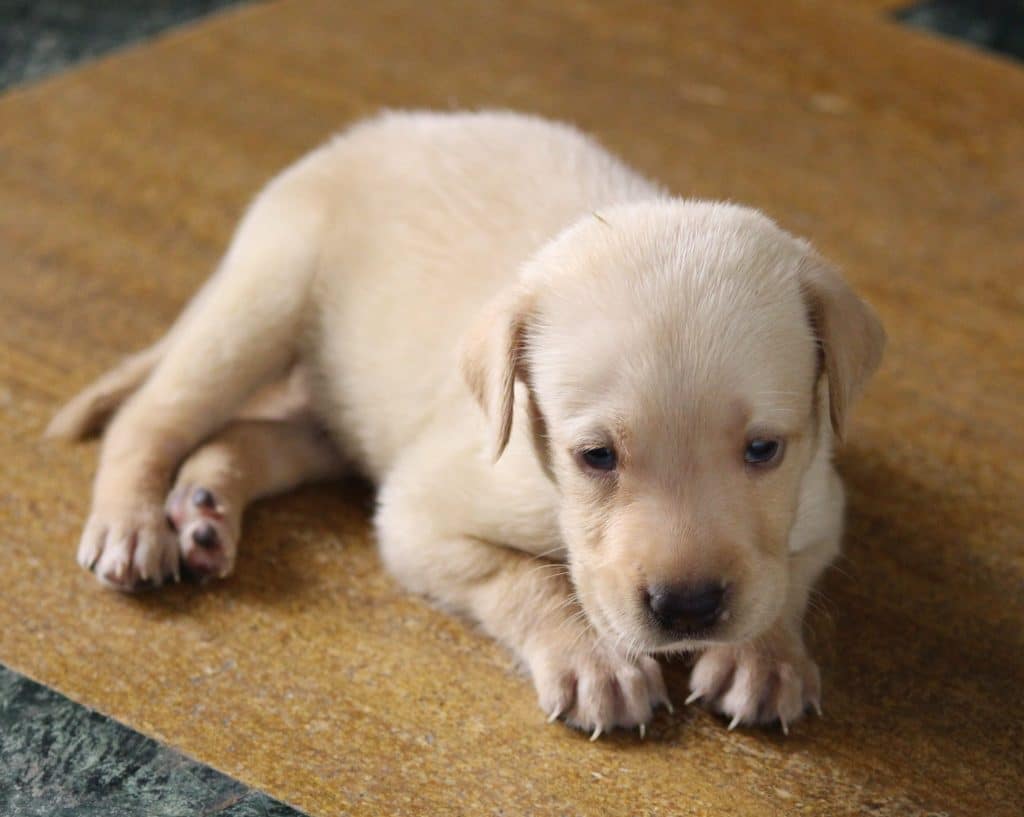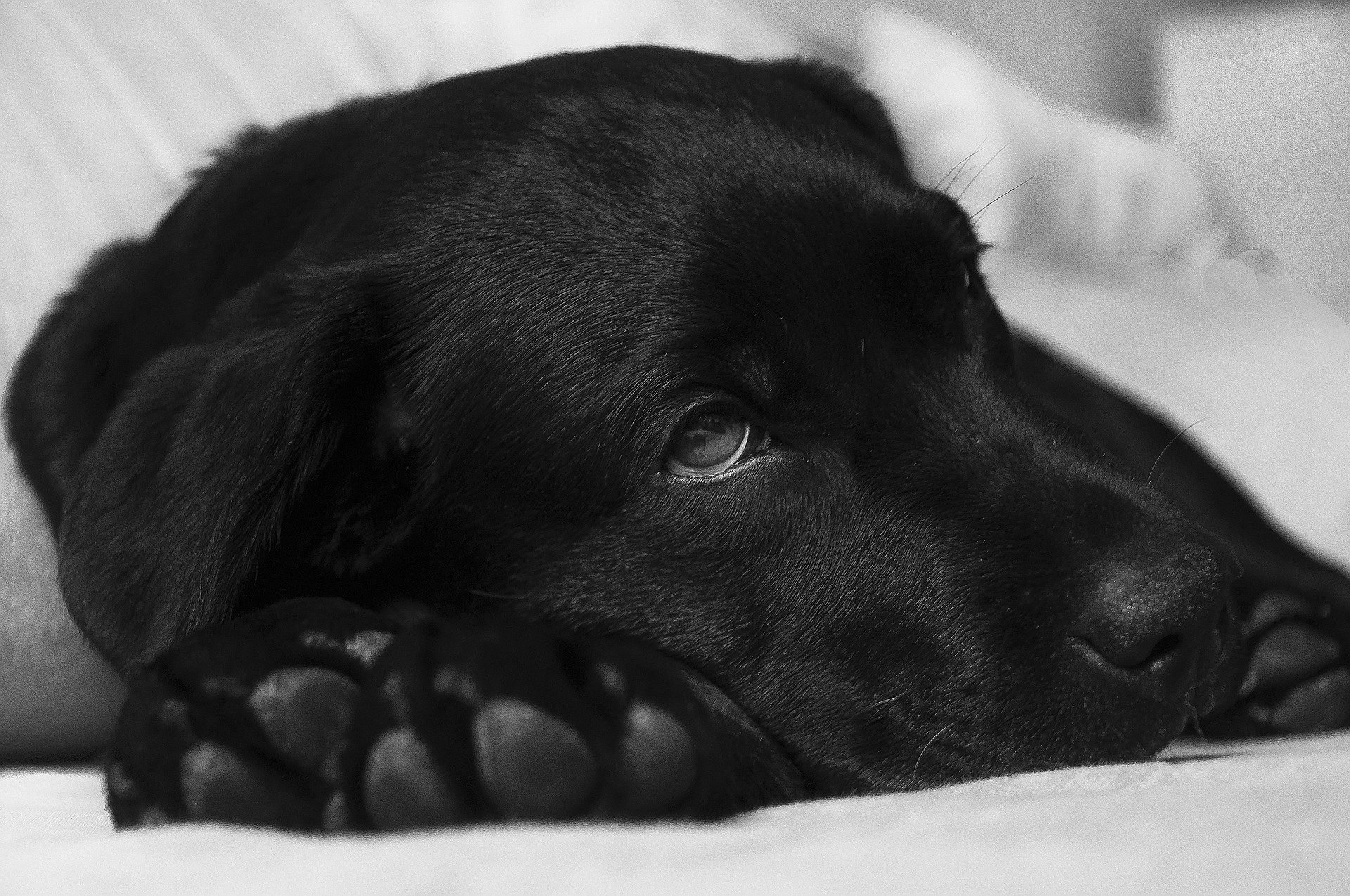- Not a substitute for professional veterinary help.
Adding a puppy to your family is an incredibly joyful experience. It also comes with a lot of responsibility and care. Unpleasant things can happen, from chewed-up shoes to whining, nipping, and tummy troubles, like diarrhea.
If you’re wondering why your puppy has diarrhea, know that you’re not alone! It’s important to know that diarrhea in puppies—and dogs in general—is common. It’s a symptom that something isn’t quite right.
If your puppy is experiencing diarrhea, keep a close eye on him or her. Puppies are still building their immune system. You want to be sure to treat any possible illness quickly.
What to watch for
Take notice of how your puppy looks and acts. If he or she is being their happy self, playing, alert, eating, drinking, and doesn’t have diarrhea again that day, then there’s likely no issue. It could be just a one-time thing.
However, if your dog is showing these signs, you should reach out to your veterinarian:
- Continues to have diarrhea
- Moping
- Lethargic, low energy
- Looks sick
- Stops eating and drinking
The cause may be treatable from home. Even so, you should consult with your vet for guidance and see if veterinary care is needed.
Causes of puppy diarrhea
There are many reasons why puppies get diarrhea. It could be as simple as being overfed.
When my dog, Parker, was young, he suddenly had explosive diarrhea. This boy never had accidents in the house. It was mystifying to me. Luckily, I noticed that the treat jar had become empty way too fast. My dog walker was overfeeding him treats.
Problems like that are easy to fix. Be observant of your dog’s behavior and surroundings and you may discover the culprit.
Other causes may not be as easy to figure out. But with the help of your vet, you can get a diagnosis and resolve any issues.
Here are the five most common causes of diarrhea in puppies.
- Diet changes
- Stress
- Infections
- Parasites
- Accidental ingestion
Diet change or food intolerance
If you need to change your puppy’s food for whatever reason, it’s best to make a slow transition over 7 to 10 days unless otherwise instructed by your veterinarian. A sudden switch in diet can cause diarrhea.
Another possibility is that your dog is intolerant or sensitive to certain foods. Consult with your vet to figure out foods that are best for your puppy.
Stress
Just like humans, dogs can feel stress and anxiety in their gut. Change is one of the things that can stress dogs out and lead to diarrhea.
Being separated from their mom and siblings is a big change. So is adjusting to their new family and surroundings. It’s important to get puppies into a routine to make them feel at ease.

Infections and viruses
Puppies are more susceptible to infections and viruses than grown dogs because they haven’t received all their vaccines. Parvovirus, distemper, and coronavirus can all cause diarrhea.
Additional symptoms of these infections and viruses include:
- Fever
- Lethargy
- No appetite
Parasites
Puppies can be born with parasites or pick them from ground or water in their environment. These parasites live in a puppy’s gastrointestinal tract and can cause both diarrhea and vomiting:
- Giardia
- Coccidia
- Roundworms
- Whipworms
- Tapeworms
Your veterinarian can prescribe medications to get rid of them.
Eating foreign objects, garbage or toxins
Puppies love to stick their snout and mouth on everything. They’re quick to ingest anything from rotten food in the garbage to chocolate on the counter to squeakers inside the toys they destroy.
As a puppy parent, it’s important to be aware of all things poisonous and toxic for your puppy. Additionally, get rid of toys with small pieces that can block the intestines when ingested.
If you suspect your dog ate something toxic or has an intestinal blockage, take him or her to the vet immediately.
What to do if your dog has diarrhea
Clean up and get a sample
When you clean up the diarrhea, look to see whether there’s any blood or mucus. You may want to place it inside a plastic baggie to give to your veterinarian as a fecal sample. The fresher the better.
If you’re not going to the vet right away, you can place inside your refrigerator for a few hours. Double bag it to ensure it doesn’t contaminate your refrigerator or food.
Make sure to disinfect the area when you clean up the diarrhea.
Help your dog feel better
Patrick Mahaney VMD, CVA, CVJ suggests some ways to soothe your puppy’s insides:
- Keep your puppy hydrated with water or ice cubes to lick.
- Fast for 8, 12 or 24 hours while monitoring your puppy closely.
- Introduce bland foods like white rice, boiled chicken, vegetable broth.
- Try fiber-rich foods like cooked sweet potato or canned pumpkin to get stool back to normal.
- Give probiotics to replenish your puppy’s gut health. They come in a variety of forms like powders, capsules, chews, and yogurt or kefir.
- Prebiotic foods nourish and promote growth of good bacteria living in the colon. Finely ground psyllium husk is also a prebiotic.
- Ask your veterinarian about Rx Clay, which calms down and detoxifies the gastrointestinal tract.
When to call the vet
Puppies require close monitoring when they have diarrhea. If it only happens once within a 24-hour period, and then they act normal, all is likely well. Just keep a close eye on them.
Reach out to your vet if diarrhea occurs multiple times in a day and your puppy doesn’t seem to be acting quite like his or her normal self.


6 Comments